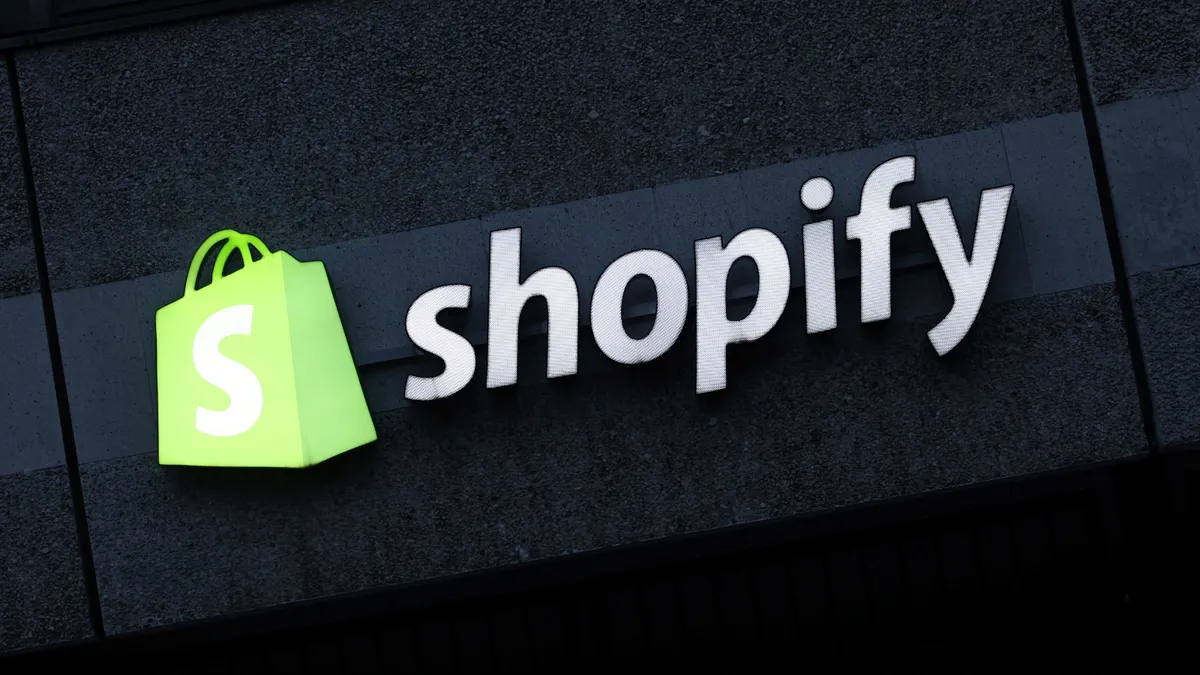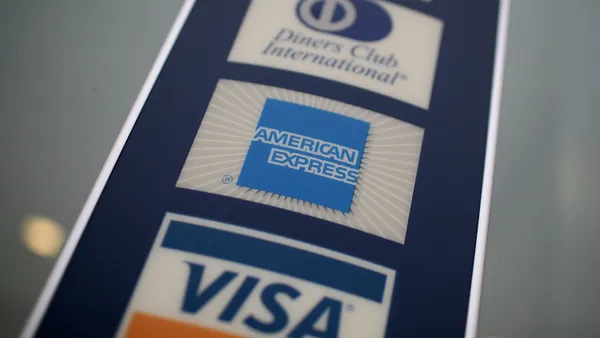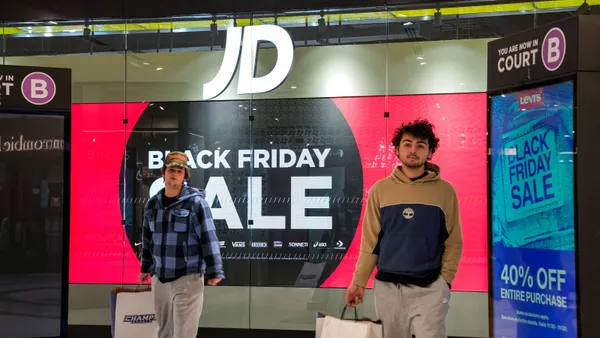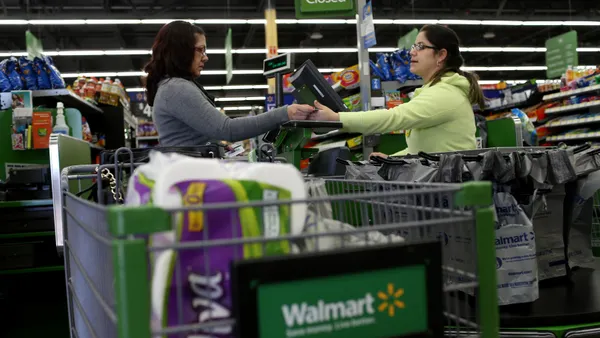Dive Brief:
- Buy now, pay later company Sezzle sued Shopify Monday, alleging in a federal lawsuit that the Canadian e-commerce marketplace systematically damaged its business and violated antitrust laws when it favored Shopify’s own BNPL offering over that of Minneapolis-based Sezzle for the past four years.
- Last year, Shopify’s BNPL installment payment program exceeded 75% of all its BNPL transactions among Shopify-based merchants, three years after Shopify added its own BNPL product to compete with that of Sezzle and other providers, said the lawsuit filed in U.S. District Court.
- Shopify media and investor relations spokespeople did not respond Tuesday to emails seeking comment. The Ottawa-based company, which offers technology to build online stores, says its technology powers websites for millions of businesses in more than 175 countries.
Dive Insight:
Shopify is the largest company offering software for entrepreneurs to establish their own e-commerce businesses through a variety of easily-managed templates, according to the lawsuit. Shopify launched its BNPL offering, Shop Pay Installments, in June 2021.
Shopify “used its market power” to make its own installment payment services the default BNPL provider on merchant websites, according to the lawsuit, and “rigged” the checkout process to make it “extraordinarily difficult” to choose another BNPL option.
Shopify also imposed fees on millions of merchants through contracts that “penalized them” for using Sezzle or another non-Shopify BNPL option, according to the suit.
“Shopify’s ongoing misconduct has therefore systematically eroded Sezzle’s business with Shopify merchants, allowed Shopify to dominate the BNPL market, and reduced (or eliminated) the BNPL choices and quality available to merchants and consumers alike,” Sezzle said in its lawsuit, which seeks an injunction and financial damages.
Sezzle also alleges that Shopify ended merchants’ use of an “inventory-locking” tool that helps retailers prevent oversales of their available inventory — and thus angry customers canceling orders — so that only Shopify could offer that feature.
Prior to Shopify starting its own BNPL product, Sezzle said the total value of its transactions on Shopify stores rose 1200% from January 2019 to June 2021, with the number of Shopify merchants using Sezzle tripling.
However, in 2021 Shopify launched its own BNPL product, and in 2022, the company began assessing merchants a 1%-2% penalty “for every transaction processed through Sezzle or other third-party payment platforms,” according to the lawsuit.
By 2023, Shopify’s BNPL product “had surged to become the titan of BNPL providers on the Shopify platform, simultaneously cutting Sezzle’s business with merchants on the Shopify platform in half,” according to the suit.
Revenue associated with volume from Shopify’s e-commerce platform was less than 5% of Sezzle’s total revenue in the first quarter, the company said Monday in a press release accompanying its lawsuit filing. “This action is an important step in ensuring that merchants and consumers have access to diverse and innovative payment solutions of their choice,” Sezzle Chief Executive Officer Charlie Youakim said in the release.
Sezzle also said in its lawsuit that in 2018 two senior Shopify executives visited the company “under the guise of ‘corporate development,’ and falsely suggested to Sezzle that Shopify was interested in acquiring or joint-venturing.”
“Shopify’s only purpose was to get as much knowledge about Sezzle’s business as it could so that Shopify could copy it,” Sezzle said in the lawsuit.
Nonetheless, Sezzle stock has jumped this year. The value of shares has nearly tripled, with a significant upward swing since early May.
On May 7, Sezzle raised its full-year net income guidance by about 50% to $120 million, with Youakim citing “stronger consumer activity and better-than-expected repayment trends.”
One reason for the investor enthusiasm is the fact that BNPL players enjoy “a very small number of logos as a competitive set and that it would be quite difficult to launch a new BNPL provider today,” B. Riley Securities analyst Hal Goetsch wrote in a May 5 client note.
BNPL companies also have abundant space to grow relative to credit card issuers, Goetsch noted, with global transaction volume less than $100 billion compared to trillions of dollars spent on credit cards.
Sezzle, however, faces potential risk in being smaller than many of its BNPL peers such as Affirm, Afterpay, Klarna and others, with those companies serving much larger retailers and wielding greater negotiating positions than Sezzle, Goetsch wrote.












